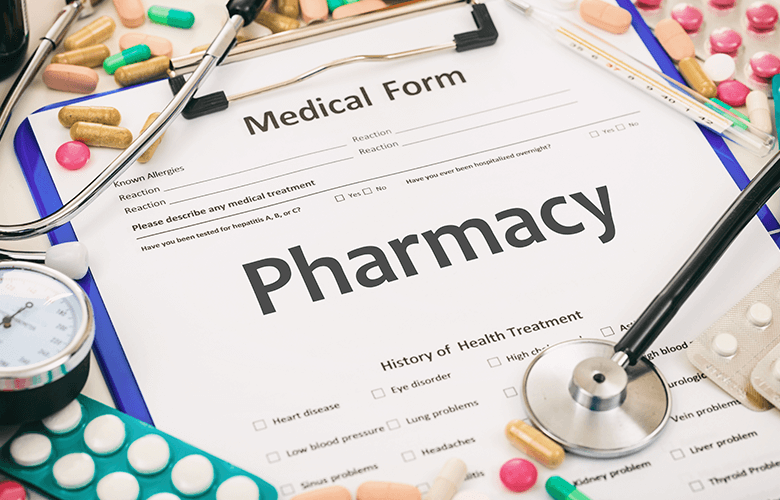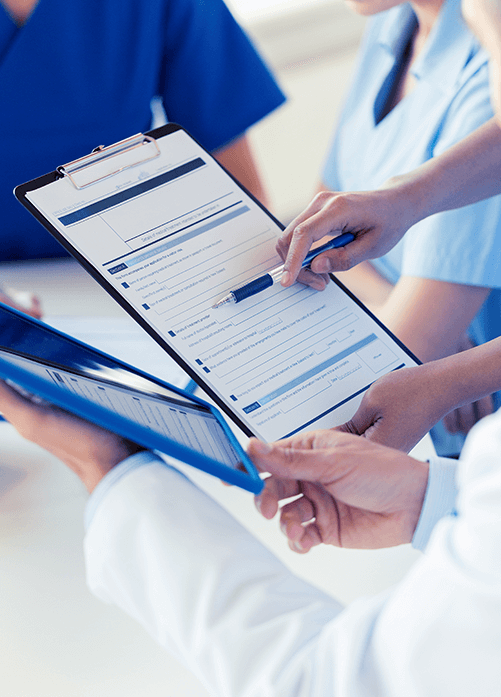Advanced Drug Safety and Pharmacovigilance Certificate Program
Pharmacovigilance, also known as drug safety, is the pharmacological science relating to the collection, detection, assessment, monitoring, and prevention of adverse effects with pharmaceutical products. The activity that is most commonly associated with pharmacovigilance and which consumes a significant amount of resources for regulatory authorities, is that of adverse event reporting. Adverse event (AE) reporting involves the receipt, triage, data entering, assessment, distribution, reporting (if appropriate), and archiving of AE data and documentation.

Program Highlights

Modules-
50

HRS of Learning-
500+

Weeks -
12

Interview based FAQs-
250+

Real World Scenarios - Q&A-
100+

Program Overview
The Pharmacovigilance course is designed to equip participants with the knowledge and skills necessary to ensure the safety and effectiveness of pharmaceutical products throughout their lifecycle. Through a combination of theoretical knowledge and practical training, participants will gain expertise in adverse event reporting, signal detection, risk assessment, and regulatory compliance in the field of drug safety.
Program Objectives
- Provide a comprehensive understanding of pharmacovigilance's
- critical role in ensuring drug safety and patient well-being.
- Educate participants on international pharmacovigilance regulations and guidelines, including ICH E2E(R2) and other relevant frameworks.
- Train participants in the collection, assessment, and reporting of adverse events and other safety-related information.
- Develop skills in identifying potential safety signals through data analysis, literature review, and other signal detection methods.
- Instruct participants on the process of evaluating the risks and benefits of a drug to support informed decision-making.
- Provide insights into pharmacovigilance activities during the conduct of clinical trials, including safety monitoring and reporting.
- Familiarize participants with post-marketing surveillance activities, including the preparation of periodic safety update reports (PSURs) and other aggregate reports.
- Equip participants with the skills to manage safety databases, ensure data quality, and implement data reconciliation processes.
- Train participants in effective risk communication strategies and signal management processes.
- Address the unique considerations and challenges in assessing drug safety in specific populations, such as pediatrics, geriatrics, and pregnant women.
- Provide guidance on preparing for pharmacovigilance audits and inspections, and responding to regulatory authority inquiries.
- Explore the integration of artificial intelligence, machine learning, and big data analytics in pharmacovigilance activities.

Target Audience
- Medical graduates with MBBS, MD, DO, Ph.Ds', *
- Dental graduates with BDS, MDS, DMD, DDS,
- Pharmacy graduates with B.Pharm, PharmD,
- Ph.D
- Nursing graduates with RN, BS, LPN
- Majors in Biological Sciences/Life Sciences/allied health fields.
- Pharmaceutical Quality analysts.
- Microbiology, Biochemistry, Organic Chemistry and Biotechnology students,
.
- Health Informatics,
- Regulatory affairs
- Medical Affairs
- Clinical Research
- Clinical Data Management or Data sciences
- Clinical Trial Management
- Quality Assurance
- Quality Control
- Pharmacovigilance and Drug Safety

Certification
Upon successful completion of the program, participants will receive a Certificate in Pharmacovigilance, demonstrating their proficiency in drug safety and pharmacovigilance practices.
Program Curriculum
Designing a comprehensive curriculum for a Pharmacovigilance program involves structuring a course that covers key theoretical concepts and provides hands-on training in practical skills. Here's a suggested outline for a Pharmacovigilance curriculum:

- Definition and Significance of Pharmacovigilance
- Historical Perspective and Evolution
- Regulatory Framework (e.g., ICH E2E(R2), FDA, EMA)
- Adverse Event (AE) vs. Adverse Drug Reaction (ADR)
- Expected vs. Unexpected ADRs
- Causality Assessment and Signal Detection
- Global Regulatory Guidelines and Requirements
- Spontaneous Reporting Systems
- Expedited Reporting and PSURs
- Adverse Event Data Collection and Sources
- Literature and Non-Clinical Data
- Patient-Reported Data and Social Media Monitoring
- AE Data Entry, Coding, and Validation
- Safety Database Design and Maintenance
- Data Reconciliation and Quality Control
- Methods for Signal Detection
- Data Mining and Statistical Signal Detection
- Risk-Benefit Assessment and Signal Evaluation
- Risk Management Plans (RMPs)
- Risk Communication and Risk Minimization Strategies
- REMS (Risk Evaluation and Mitigation Strategies)
- Audit Preparation and Conduct
- Regulatory Inspections and Responses
- Corrective and Preventive Actions (CAPA)
- AE Reporting in Clinical Trials
- Safety Data Integration with Clinical Data
- Safety Monitoring and Data Safety Monitoring Boards (DSMB)
- Benefit-Risk Evaluation Framework
- Aggregate Safety Reports (e.g., DSUR, PSUR)
- Benefit-Risk Communication to Stakeholders
- Use of Artificial Intelligence and Machine Learning
- Big Data Analytics in Pharmacovigilance
- Blockchain and Pharmacovigilance
- Vaccines and Biologics Safety Surveillance
- Medical Device Vigilance
- Herbal and Traditional Medicine Safety
- Quizzes and Knowledge Checks
- Practical Exercises (e.g., Case Studies, Signal Detection)
- Group Projects and Presentations
- Final Exam or Capstone Project
- Guest Lectures from Industry Experts
- Mock Audits and Inspections
- Regulatory Affairs and Compliance Workshops
Career Paths
Pharmacovigilance, as a critical aspect of drug safety, offers a range of career opportunities. Here are some common career paths in Pharmacovigilance::
- Responsibilities: Collect and evaluate adverse event reports, ensure compliance with regulatory requirements, and manage safety databases.
- Skills Needed: Attention to detail, knowledge of regulatory guidelines, strong organizational skills.
- Responsibilities: Assess and evaluate adverse event reports for causality and seriousness, provide medical expertise in safety assessment.
- Skills Needed: Medical background (e.g., PharmD, MD), clinical knowledge, analytical skills.
- Responsibilities: Oversee pharmacovigilance activities, ensure compliance with regulatory requirements, lead safety teams.
- Skills Needed: Leadership, regulatory knowledge, project management skills.
- Responsibilities: Develop and implement risk minimization strategies, conduct benefit-risk assessments, and oversee risk management plans.
- Skills Needed: Risk assessment, regulatory knowledge, communication skills.
- Responsibilities: Ensure compliance with quality standards, conduct audits and inspections, implement quality management systems.
- Skills Needed: Quality assurance knowledge, auditing skills, attention to detail.
- Responsibilities: Liaise with regulatory authorities, ensure compliance with pharmacovigilance regulations, and support regulatory submissions.
- Skills Needed: Regulatory knowledge, communication skills, attention to detail.
- Responsibilities: Analyze safety data to identify potential signals, perform benefit-risk assessments, and contribute to risk management strategies.
- Skills Needed: Analytical skills, statistical knowledge, pharmacovigilance expertise.
- Responsibilities: Conduct safety assessments in clinical trials, contribute to study protocols, and provide safety-related guidance.
- Skills Needed: Clinical research knowledge, medical background, analytical skills.
- Responsibilities: Provide training on pharmacovigilance principles, regulatory requirements, and case processing procedures.
- Skills Needed: Communication skills, knowledge of pharmacovigilance practices.
- Responsibilities: Offer specialized pharmacovigilance services to pharmaceutical companies, regulatory agencies, or research organizations.
- Skills Needed: Expertise in pharmacovigilance, business acumen, networking skills.
- Responsibilities: Analyze safety data, perform statistical analyses, and generate safety reports.
- Skills Needed: Statistical knowledge, data analysis skills, pharmacovigilance expertise.
- Responsibilities: Manage pharmacovigilance databases and IT systems, ensure data integrity and security.
- Skills Needed: IT skills, database management knowledge, attention to detail.

Remember, these career paths often have room for advancement, specialization, and crossover into related fields like regulatory affairs, clinical research, or quality assurance. Continuous learning and staying updated with industry trends and regulations are crucial for success in Pharmacovigilance.
